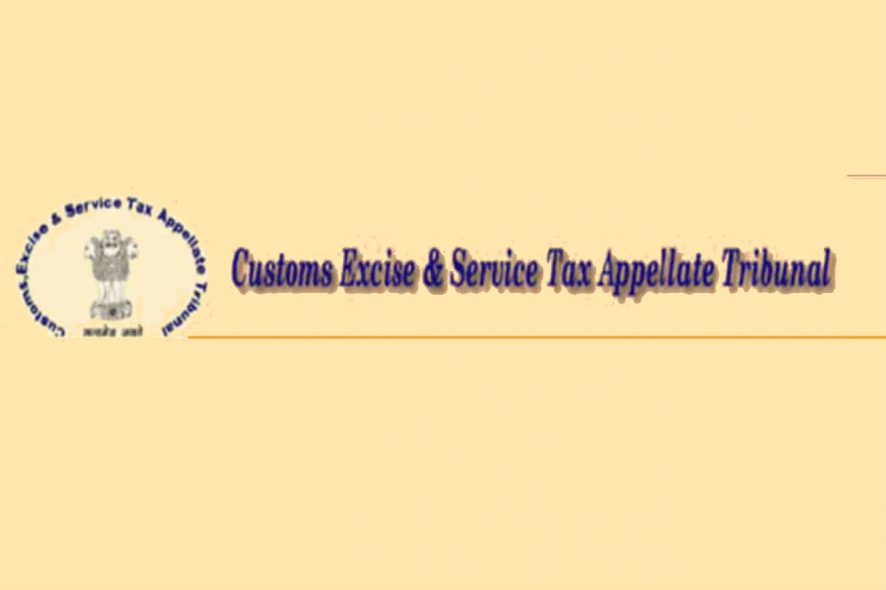Customs, Excise and Services Tax Appellate Tribunal (CESTAT): The Coram of Dilip Gupta (President) and P. Anjani Kumar (Technical Member) allowed an appeal where they had to decide whether rule 6(4) credit of capital goods is admissible if the production and clearance of dutiable goods take place within two years from the date of commencement of production/installation of capital goods and whether goods exported under bond can be held to be exempted goods.
The appellant was engaged in the manufacture of ‘Polyester Viscose Yarn’ and have installed capital goods in their factory during the financial year 2016-17. Appellants had partly cleared final products availing exemption notification no. 30 of 2004-CE dated July 9, 2004, and exported some goods under bond under Rule 19 of the Central Excise Rules 2002, some parts of the goods were cleared on payment of duty during the year 2017-18 but pursuant to an audit conducted the Department opined that the credit availed by the appellant was not available to them as they have cleared the goods without payment of duty availing exemption under notification 30 of 2004. A show-cause notice was issued dissolving credit of Rs. 1,40,72,105 which was dropped by the original authority. Department had filed an appeal, wherein the Commissioner (Appeals) setting aside the order of the original authority and confirming the duty as demanded in the show cause notice. Thus, the instant appeal was filed.
The Counsel for the appellant submitted that Rule 6(4) indicates that CENVAT credit is not allowed if the capital goods are used exclusively in the manufacture of exempted goods for a period of two years from the date of commencement of commercial production or installation of the capital goods; in the instant case he submits that the capital goods were received during 2016-17 which is after the commencement of commercial production; therefore, in terms of the proviso the relevant period is to be reckoned from the date of installation of capital goods.
The Tribunal observed that the impugned order failed to take into consideration the amended rule which was very clear that credit was not admissible if the said capital goods were utilized exclusively in the manufacture of exempted goods for a period of two years from the date of commencement of commercial production or from the date of installation of capital goods. The Tribunal further observed that in the present case capital goods were installed after the commencement of production in the year 2016-17. The credit would have been inadmissible to the appellant if they had continued to clear exempted goods till 2018-19. However, records of the case indicated that the appellant had cleared goods on payment of duty during 2017-18 as evidenced by the ER-1 filed for the month of June 2017.
The Tribunal relied on the judgment of Welspun India Ltd. v. CCE, 2019 SCC OnLine CESTAT 5779 wherein it was held that:
“4………
As per the above-substituted Rule, it is clear that the bar on availing the credit in respect of capital goods used in manufacture of exempted goods shall apply only if the capital goods are used for two years from the date of installation / commencement of production. As per the facts of the present case, though the appellant received and installed the capital goods in their running unit in August, 2015 but before completion of two years, in August 2017 the capital good was used for manufacture of goods which were cleared on payment of duty, availing the exemption notification 29/2004-CE. Therefore, the capital goods were not used continuously for two years for manufacture of exclusively exempted goods. Since the amendment is by way of substitution, it will be applicable from the retrospective effect.”
The Tribunal allowed the appeal finding that the original authority has correctly appreciated the provisions of Rule 6(4) and has allowed the credit whereas the learned Commissioner (A) has erred in following the ratio of the larger Bench. The Tribunal held that credit was admissible to the appellant and the alternative plea that goods exported under bond could not be treated as exempted goods and therefore inspite of the fact that they had cleared only exempted goods during 2016-17 were cleared goods for export under Rule 19, credit was admissible.[Orient Syntex v. CCE, Excise Appeal No. 50012 of 2020, decided on 09-12-2020]
Suchita Shukla, Editorial Assistant has put this story together






